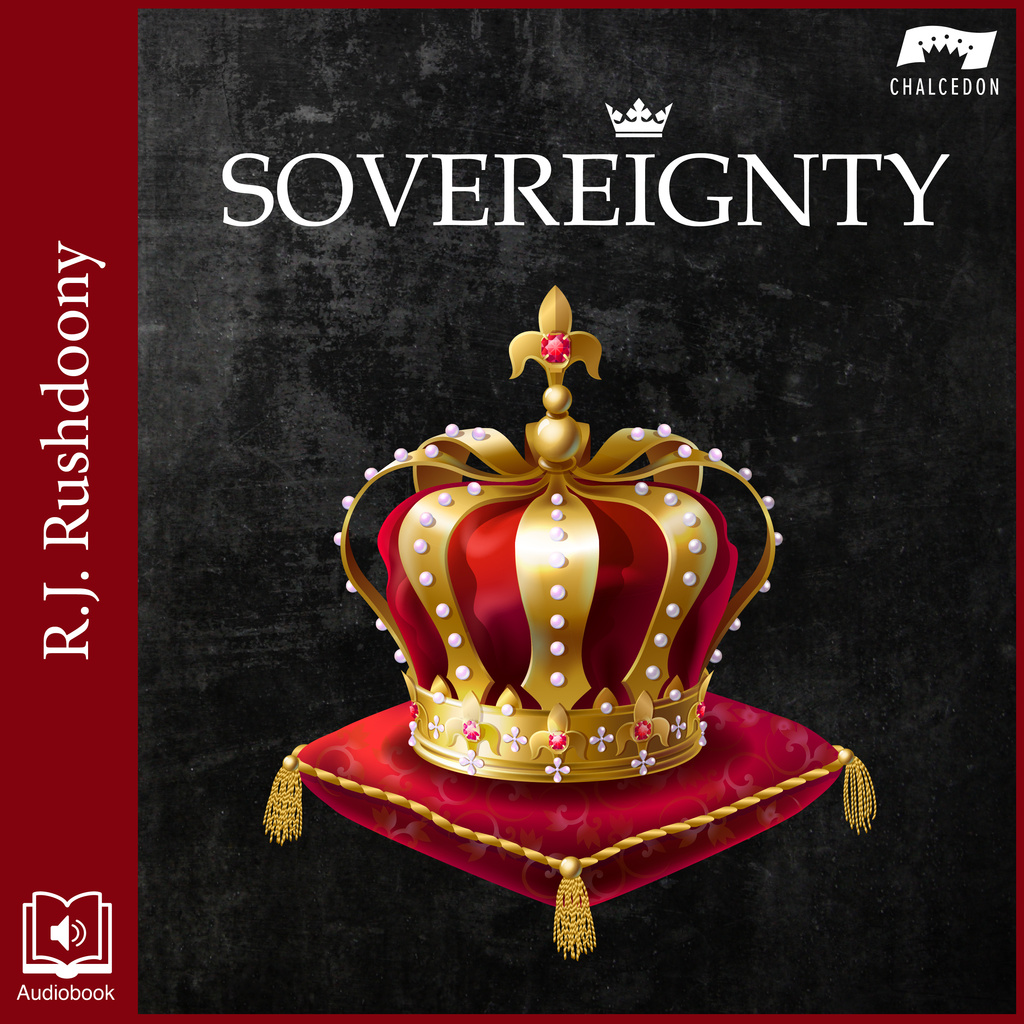
Sovereignty
For fallen man, sovereignty belongs to the state because the state is the source of law. Since the Christian can have no other gods (Ex. 20:3), history is defined appropriately by Augustine as a conflict between the City of Man and the City of God. As in all conflicts, we must choose this day whom we will serve.
Run Time: 18 hrs and 27 mins

- R. J. Rushdoony,
- Nathan Conkey
Audiobook Sample
The word sovereignty means one who is above all. It is the supreme and highest power. The Christian defines the Sovereign Lord as unlimited, independent, with original authority.
For fallen man, sovereignty belongs to the state because the state is the source of law. Since the Christian can have no other gods (Ex. 20:3), history is defined appropriately by Augustine as a conflict between the City of Man and the City of God. As in all conflicts, we must choose this day whom we will serve.
Calvinists often limit the doctrine of sovereignty to a systematic theological definition of God. Much more work is needed in developing the implications of sovereignty for the Kingdom of God and its application in terms of the law-word of God.
In this posthumously published volume, R. J. Rushdoony examines the comprehensive implications of God's sovereignty with a clear eye to critiquing the various places where man posits sovereignty-especially the sovereign state. This is a must-read for anyone seeking to understand the crises of our times.

- R. J. Rushdoony
Rev. R.J. Rushdoony (1916–2001), was a leading theologian, church/state expert, and author of numerous works on the application of Biblical law to society. He started the Chalcedon Foundation in 1965. His Institutes of Biblical Law (1973) began the contemporary theonomy movement which posits the validity of Biblical law as God’s standard of obedience for all. He therefore saw God’s law as the basis of the modern Christian response to the cultural decline, one he attributed to the church’s false view of God’s law being opposed to His grace. This broad Christian response he described as “Christian Reconstruction.” He is credited with igniting the modern Christian school and homeschooling movements in the mid to late 20th century. He also traveled extensively lecturing and serving as an expert witness in numerous court cases regarding religious liberty. Many ministry and educational efforts that continue today, took their philosophical and Biblical roots from his lectures and books.
- Nathan Conkey